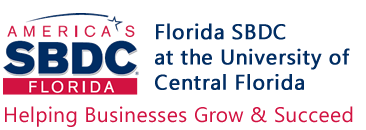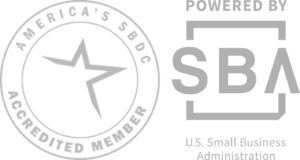Frequently Asked Questions
View our Frequently Asked Questions to get answers to common business questions. If your question is not listed on our Frequently Asked Questions page, please contact us at any time.
General Questions
What is a small business?
Depending on your industry, a small business could be defined as business with a maximum of 250 employees or a maximum of 1,500 employees. They’re privately owned corporations, partnerships, or sole proprietorships that have less revenue than larger businesses. For the industry-level definitions of small business used in government programs and contracting, see U.S. Small Business Administration’s Table of Small Business Size Standards.
What are the types of small businesses?
The common business structures include:
- Sole proprietorship
- Partnerships
- Limited liability company (LLC)
- Corporation – C corp
- Corporation – S corp
- Corporation – B corp
- Nonprofit
For more information on the differences and advantages between each business structure, please visit the SBA’s website or request a NO-COST consultation with a Florida SBDC at UCF Consultant.
Does the Florida SBDC at UCF assist all businesses?
The Florida SBDC at UCF assist all for-profit, small businesses (as defined by the US SBA Small Business Size Standards) in Orange, Osceola, Seminole, Lake, Sumter, Volusia, Brevard, and Flagler Counties. Business located outside of our 8-county region can get assistance from your local SBDC office.
To locate your local Florida SBDC, please visit – https://floridasbdc.org/locations/
To find an SBDC outside of the State of Florida, please visit- https://americassbdc.org/find-your-sbdc/
Is there any assistance for small business owners?
Yes, the Florida SBDC at UCF can assist you with starting your business, marketing, human resources, accessing capital, government contracting, exporting, market research and more. Click here to request a meeting with a Florida SBDC at UCF Consultant
Where to I register by my business?
Register your business with the State of Florida via www.sunbiz.org.
Depending on the location of your business you may also need a county and/or city business tax receipt.
Also, depending on the industry, you may need specific licenses and permits to operate your business.
For more assistance starting your business please request a NO-COST consultation with a Florida SBDC at UCF Consultant
Are there any tax resources for small businesses?
The following are tax resources provided by the US Internal Revenue Service (IRS)
- Business and Self-Employed
- Coronavirus Credits, Deductions and Relief
For specific tax questions, we recommend contacting your Certified Public Accountant (CPA).
Financing and Funding Questions
Can I get financing if I have been in business less than two-years?
Most successful start-ups get their funding from personal resources and friends and family to open. However, since a start-up is a business that has been opened less than two years, you will want to have access to capital during those first two years. Some banks offer credit cards or other small lines of credit for start-ups. If your business requires more capital investment, over $50,000, a 7A loan may be a better option for you. That will then lead to the SBA section since small businesses can get conventional loans and lines of credit (no SBA guaranty).
Does the SBA offer loans?
The Small Business Administration (SBA) guarantees business loans issued by approved lenders. The SBA loans carry relatively low interest rates with terms up to 25 years.
The six types of SBA loans are:
- SBA 7(a) Loans: Working capital up to $5 million
- SBA CDC/504 Loans: For purchasing owner-occupied commercial real estate
- SBA Express loans (up to $350,000). Revolving feature with term out.
- SBA CAPLines: A line of credit that can be used again
- SBA Export Loans: Financing for exporters to bolster their export activity
- SBA Microloans: Working capital loans of up to $50,000
- SBA Disaster Loans: Loans for businesses that have been impacted by a declared natural or economic disaster.
For more information on how to apply, please request a NO-COST consultation with a Florida SBDC at UCF Consultant
Are small business loans secured or unsecured?
Standard 7(a) SBA loans don’t require collateral if the loan amount is $25,000 or less. Above that amount, any Standard 7(a) loan must be secured with collateral.
For more information please request a NO-COST consultation with a Florida SBDC at UCF Consultant
Do I have to have good personal credit to get a small business loan?
The vast majority of small business loan applications will consider your personal credit score over your business credit score, and most don’t require a business credit score at all.
Are there any grants available to small businesses?
Small business grants can be difficult to find. You can find information on small-business grants at government agencies, state organizations and private corporations. A few good places to start your search include:
Government Contracting Questions
Does my business need to be operating to work with government agencies?
As a general rule, we usually suggest that a business have at least two (2) years of generating revenue before they start pursuing government markets but there is no legal requirement to do so. Some specific programs within the government marketplace may require a certain number of years of experience though.
What resources are available for working with the government?
The Florida PTAC at UCF has decades of government contracting experience, so they are your number one resource. They can assist with bid/proposal preparation, registrations, certifications, marketing, networking, and contract administration.
For more information please visit the Florida PTAC at UCF webpage.
What is PTAC?
The PTAC (Procurement Technical Assistance Center) is a no cost resource for government contractors. The PTAC receives its funding from a combination of the Department of Defense, host institutions, and other stakeholders. The PTAC at UCF has two (2) PTAC Counselors on staff that work with businesses in all stages of government contracting.
Is government contracting right for my business?
Government contracting is not the best next step for all businesses but if your business is established in SunBiz, generating some level of revenue from commercial and/or residential markets, have some of the basic business building blocks in place such as a budget, business plan, and a sales process in place then getting the business positioned for government contract could be a good next step.
What does ‘vendor registration’ mean?
A serious government contractor will eventually need to register with every level of government that they are targeting. For example, businesses interested in selling to the federal government would need to register at SAM.gov (www.sam.gov) and businesses interested in selling to the State of Florida need to a registered vendor in MyFloridaMarketplace. You would also need to be a registered vendor for local government agencies and some prime contractors as well.
What is my best first step in exploring government contracting?
The Florida PTAC at UCF team hosts a monthly “Government Contracting: Overview” webinar that can be a great next step for your government contracting pursuits and a great way to get introduced to the Florida PTAC at UCF. If you are brand new to government contracting or even down the path a bit, this can be a useful training. You can learn more and register for this event at https://sbdcorlando.com/upcoming-seminars/
Certifications Questions
Why get certified?
Being certified as a woman, minority or veteran owned small business opens the doors to working with government entities and gives you a competitive edge.
Are there any resources available for woman-owned and/or minority small businesses?
There are many resources available for minorities, including the Small Business Administration.
What is the Women-Owned Small Business (WOSB) Federal Contracting Program?
The purpose of the WOSB Program is to ensure that women-owned small businesses (WOSBs) have an equal opportunity to participate in Federal contracting and to help attain the Federal government’s goal of awarding five percent of its prime contract dollars to WOSBs.
To be eligible for the WOSB Federal Contracting program, a business must:
- Be a small business according to SBA size standards
- Be at least 51% owned and controlled by women who are U.S. citizens
- Have women manage day-to-day operations who also make long-term decisions.
How do I obtain a National Minority Business Enterprise (MBE) Certificate?
The National Minority Supplier Development Council (NMSDC) is a membership organization comprised of small minority-owned businesses and large corporate businesses. The NMSDC also offers an official certification process for minority-owned businesses.
To qualify for certification, you must meet these qualifications:
- The business owners must be U.S. citizens
- The business must be at least 51% minority-owned, operated, and controlled. (Per the NMSDC, a minority must be at least 25% Asian, Black, Hispanic, or Native American. Also, minority eligibility is established through screenings, interviews, and site visits. For publicly owned businesses, at least 51% of the stock must be owned by one or more minority group members.)
- The business must be for-profit and physically located in the U. S. or its territories.
- The minority owners must also participate in the daily management and operations of the business.
Does the City of Orlando offer a Minority or Women-Owned Enterprise Certificate?
Yes. The City of Orlando does offer Minority or Women-Owned Enterprise (M/WBE). The Minority & Women Business Enterprise program is intended to increase the opportunity for minority and women-owned firms to participate in City procurement and ensure equal contracting opportunities for Minority and Women Business Enterprises (M/WBE). Click here for more information.

